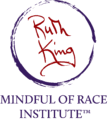I’ve been thinking about character lately given our intense political climate of “character assignation.” It’s not that uncommon, really. As an organizational development consultant and leadership coach for many years, I’m intimate with how the emergence of any form of leadership is both covertly and openly attacked. Those of us courageous enough to take a stance—whether politically or in our personal relationships—are fair game for character attack or rejection. Yet to not take a stance is a form of self-betrayal and denies the heart’s generous nature. Too many of us live silenced and paralyzed in fear, often envious or highly critical of risk takers, while others, despite this fear, step out.
What do I mean by character? Character is the livelihood of intention—blooms from the seeds of our intent. Character is expression—something we manifest and can see, feel, and shape to our likeness. Character is action—it keeps the heart and eyes open and the mouths and feet moving. Character is relational—it cannot be known until it is shared or engaged. It requires feedback.
Wholesome character is qualitative. It has to do with integrity—showing up, keeping our word, telling the truth, and sharing our wisdom in ways that benefit all beings. Kept to oneself, character is merely a thought, concept, ideal, or secret.
Core to character is belonging. We belong to each other and this planet, and are dependent on each other’s goodness. When we don’t recognize, honor, or utilize the wholesome character of others and the gifts that surround and support us, we are disconnected from the fuel of aliveness and its relational sustenance.
When we are disconnected, we are unaware or surprised by our affect on others. For example, when we receive feedback that does not match our intentions, our first reaction may be to reject what we are hearing and rebel. Our second reaction however could be to consider the validity of the feedback or at a minimum its impact. And there are times when despite our best efforts and reflections, people will simply attack or rejection our character. In these trying circumstances, don't try to figure out why this is happening. It's important to stand firm with a fierce heart and keep the hate and ill-will out of the interactions. This is not easy, just necessary.
While change is constant, it does not guarantee evolution of character. To evolve character requires mindfulness. Mindfulness invites us to warmly notice our true nature and intentions, and character is the expression of this truth. When we are mindful, the content of our character evolves becoming more authentic, discerning, sensitive, and skillful life expressions. We more readily notice when the impact of our actions don’t match our heart’s intention and we realign. This realigning evolves character.
Character does not have to be grandiose. It can be a daily practice of kindness, or an hourly practice of forgiveness, or moment-to-moment gratitude for the courage to be a genuine human in a universal heart.

This is so timely in my life and it is such a blessing to receive t from someone I trust, respect and cherish. I am so glad you are becoming a teacher through Jack. Can’t wait to sit retreat with you at Spirit Rock. Maybe, one day, our paths will alsign and we will teach together.
Very nice article. I am curious about the relationship between character and culture. Is the definition of character universal or culture bound? Also is character formed and set from childhood? Some say it is very difficult to change one’s character because it is partly formed from our childhood experiences. How do we transform our world society to an agreeable character?
I am reminded from your post about Martin Luther King Jr intending for all of us to be judged by the content of our character. As he did, you are reminding us that our character must be nurtured as an intentional part of our evolutionary process. I am privliedged as your partner to see you heed your own advice everyday as you support me to do the same.
Great questions Ernest. A few thoughts in response: I don’t know if cultures necessarily have a character. Cultures are cultures—culture reflects the collective play of character. Cultures are representative of a collective history and consciousness. I see character more as the property of an individual. In order to evolve cultures, one’s individual character must evolve in a wholesome direction (from good intentions). If a critical mass of people within the culture is evolving their character, the culture also evolves. Individuals make choices that ultimately affect the cultures we live in. I don’t believe the definition of character is universal or culture bound nor do I know of a universal definition of character. If i did, it would be someone else’s definition, not my own, and i prefer defining or making sense of things from my own experiences. And while character is influenced or shaped by childhood experiences, for this very reason we can reshape our character—when we know better, we do better. We are shapable as humans. The question is who is doing the shaping. It may be difficult to change habits but it’s not impossible. We take this challenge on when we decide we don’t want to feel isolated or separate from giving and receiving the goodies of life.
I don’t think anyone should aim for a socially “agreeable character.” character is something each individual should define and live from the inside out. This requires that we pay attention to whether our heart intentions are reflected in our day to day actions. This means being honest with ourselves and getting our egos out of the way. To look at our lives mindfully, intimately, often requires that we change or realign our ways. This is not impossible, just necessary.